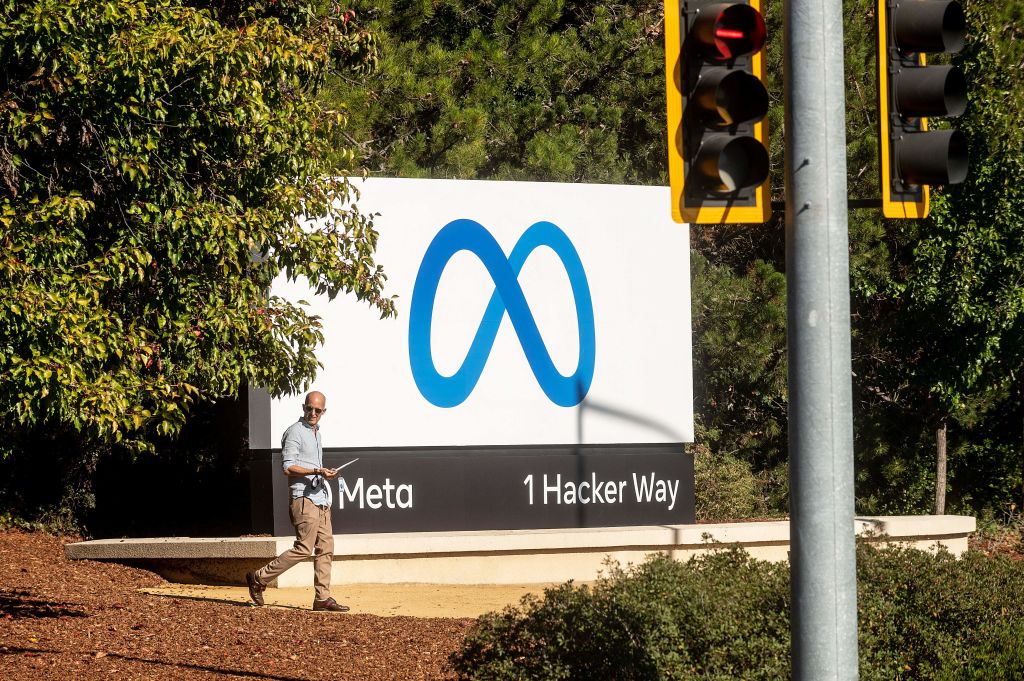Facebook to shut down facial recognition system, delete templates for more than 1 billion people


A free daily email with the biggest news stories of the day – and the best features from TheWeek.com
You are now subscribed
Your newsletter sign-up was successful
Facebook is closing the book on its facial recognition system due to "growing concerns" about the technology's use.
The social media company announced Tuesday that over the coming weeks, it will shut down its facial recognition system, which is used to recognize people in photos and videos automatically. The more than a third of Facebook's daily users who opted into this system, which Facebook introduced in 2010, will soon "no longer be automatically recognized in photos and videos, and we will delete the facial recognition template used to identify them," said Meta's vice president of artificial intelligence, Jerome Pesenti. The company will therefore be deleting the facial recognition templates of over a billion people, per the announcement.
As for why, Pesenti explained "there are many concerns about the place of facial recognition technology in society, and regulators are still in the process of providing a clear set of rules governing its use," so "amid this ongoing uncertainty, we believe that limiting the use of facial recognition to a narrow set of use cases is appropriate." Pesenti, though, pointed to instances in which the technology can be useful, including to help users gain access to locked accounts and prevent fraud.
The Week
Escape your echo chamber. Get the facts behind the news, plus analysis from multiple perspectives.

Sign up for The Week's Free Newsletters
From our morning news briefing to a weekly Good News Newsletter, get the best of The Week delivered directly to your inbox.
From our morning news briefing to a weekly Good News Newsletter, get the best of The Week delivered directly to your inbox.
Facebook's facial recognition system has for years sparked privacy concerns, and the decision comes as the company faces a major public relations crisis after a whistleblower accused of it putting profits over the safety of its users. Adam Schwartz, a lawyer for the civil liberties organization Electronic Frontier Foundation, praised Facebook's announcement on Tuesday, telling The New York Times, "Facebook getting out of the face recognition business is a pivotal moment in the growing national discomfort with this technology. Corporate use of face surveillance is very dangerous to people's privacy."
A free daily email with the biggest news stories of the day – and the best features from TheWeek.com
Brendan worked as a culture writer at The Week from 2018 to 2023, covering the entertainment industry, including film reviews, television recaps, awards season, the box office, major movie franchises and Hollywood gossip. He has written about film and television for outlets including Bloody Disgusting, Showbiz Cheat Sheet, Heavy and The Celebrity Cafe.
-
 American universities are losing ground to their foreign counterparts
American universities are losing ground to their foreign counterpartsThe Explainer While Harvard is still near the top, other colleges have slipped
-
 How to navigate dating apps to find ‘the one’
How to navigate dating apps to find ‘the one’The Week Recommends Put an end to endless swiping and make real romantic connections
-
 Elon Musk’s pivot from Mars to the moon
Elon Musk’s pivot from Mars to the moonIn the Spotlight SpaceX shifts focus with IPO approaching
-
 TikTok secures deal to remain in US
TikTok secures deal to remain in USSpeed Read ByteDance will form a US version of the popular video-sharing platform
-
 Unemployment rate ticks up amid fall job losses
Unemployment rate ticks up amid fall job lossesSpeed Read Data released by the Commerce Department indicates ‘one of the weakest American labor markets in years’
-
 US mints final penny after 232-year run
US mints final penny after 232-year runSpeed Read Production of the one-cent coin has ended
-
 Warner Bros. explores sale amid Paramount bids
Warner Bros. explores sale amid Paramount bidsSpeed Read The media giant, home to HBO and DC Studios, has received interest from multiple buying parties
-
 Gold tops $4K per ounce, signaling financial unease
Gold tops $4K per ounce, signaling financial uneaseSpeed Read Investors are worried about President Donald Trump’s trade war
-
 Electronic Arts to go private in record $55B deal
Electronic Arts to go private in record $55B dealspeed read The video game giant is behind ‘The Sims’ and ‘Madden NFL’
-
 New York court tosses Trump's $500M fraud fine
New York court tosses Trump's $500M fraud fineSpeed Read A divided appeals court threw out a hefty penalty against President Trump for fraudulently inflating his wealth
-
 Trump said to seek government stake in Intel
Trump said to seek government stake in IntelSpeed Read The president and Intel CEO Lip-Bu Tan reportedly discussed the proposal at a recent meeting
